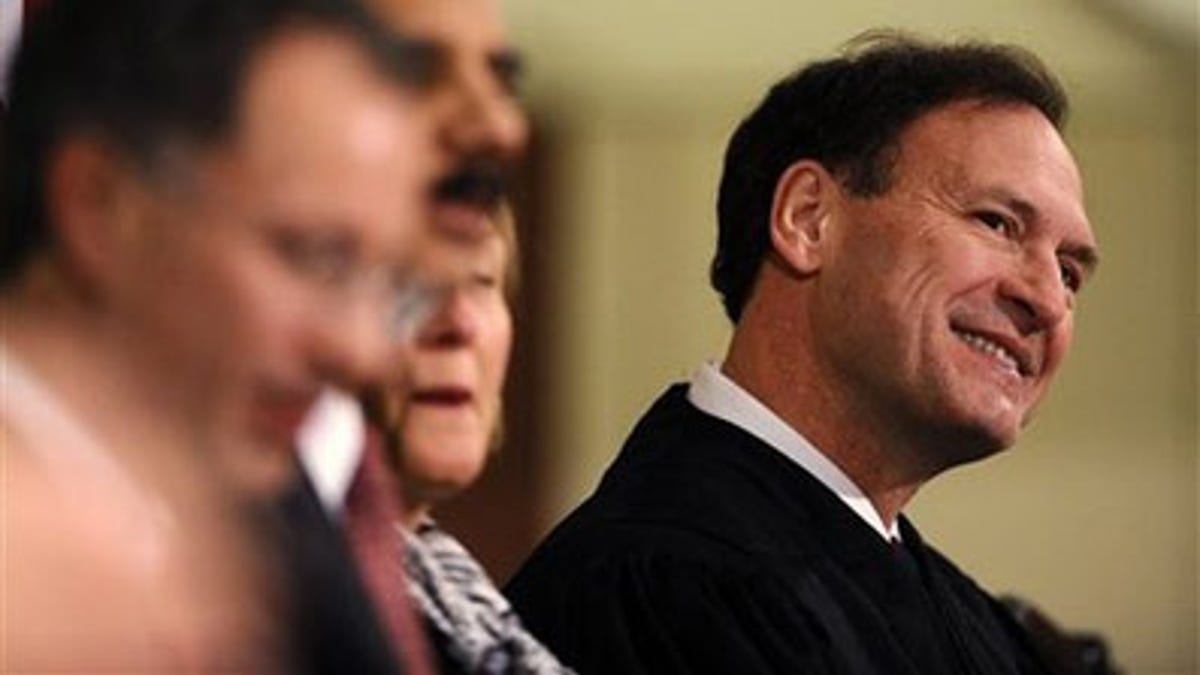
AP
The Supreme Court issued a ruling last week on the campaign finance that is still being discussed all over the country. In fact, it was even mentioned by President Obama at Wednesday night’s State of the Union address. The high court invalidated its own 20-year-old ruling -- which had upheld a one hundred-year-old statute on group political contributions -- and it also invalidated a portion of the McCain-Feingold Campaign finance law.
The 20-year-old ruling had forbidden any political spending by groups such as corporations, labor unions, and advocacy organizations (like the NRA and Planned Parenthood, for example). Ruling that all persons, individually and in groups, have the same unfettered free speech rights, the court blasted Congress for suppression of that speech. In effect, the court asked, “What part of ‘Congress shall make no law…abridging the freedom of speech’ does Congress not understand?” Thus, all groups of two or more persons are free to spend their own money on any political campaigns and to mention the names of the candidates in their materials.
The court also threw out the portion of McCain-Feingold law that had prohibited persons who pool their funds or contribute to Political Action Committees (PACs), from spending those funds, directly or through PACs, in the 60 day period preceding an election. Since that 60 day period preceding the election is the most vital in any campaign, the court held that the prohibition on expenditures during that time was a violation of the free speech guaranteed to all persons, individually and in groups, by the First Amendment.
Thus, as a result of this ruling, all groups may spend their own money as they wish on any political campaigns, but they still may not--as groups--contribute directly to candidates’ campaigns. The direct political contribution prohibition in McCain-Feingold that prevents corporations, labor unions, and advocacy groups from giving money directly to candidates was not challenged in this case, thus its constitutionality was not an issue before the court. Groups will thus effectively be running and financing their own campaigns for candidates independent of those candidates’ campaigns.
The case arose in the context of a challenge by an advocacy group that produced a 90-minute motion picture called "Hillary: The Movie," a highly critical movie about Hillary Clinton, to a ruling by the Federal Election Commission (FEC). The FEC had ruled that in reality the movie was an anti-Hillary political ad. And, since it was financed by an advocacy group, it was banned under the Supreme court's 20- year-old ruling, the one that the Court just invalidated. That movie can now, two years after it was made and eighteen months after Sen. Clinton abandoned her presidential campaign, be distributed and viewed.
During the course of oral argument on this case in October in the Supreme Court, one of the FEC's lawyers replied to a question from Justice Antonin Scalia to the effect that the FEC could ban books if they were paid for by corporations, labor unions, or advocacy groups. This highly un-American statement in the Supreme Court by a government lawyer--that the federal government can ban political books--infuriated a few of the justices. The conservative justices were joined by Justice Anthony Kennedy, the swing vote between the conservative and liberal blocs on the Court. The Court's newest member, Justice Sonia Sotomayor, joined the dissent.
On Wednesday night, during his State of the Union address, the president attacked this decision by arguing that the ruling permits foreign nationals and foreign corporations to spend money on American campaigns. When he said this, Justice Samuel Alito, who was seated just 15 feet from the president, gently whispered: “That’s not true.” Justice Alito was right. The Supreme Court opinion, which is 183 pages in length, specifically excludes foreign nationals and foreign-owned corporations from its ruling. So the president, the former professor of law at the one of the country’s best law schools, either did not read the opinion, or was misrepresenting it.
Judge Andrew Napolitano is Fox New Channel's senior judicial analyst.
